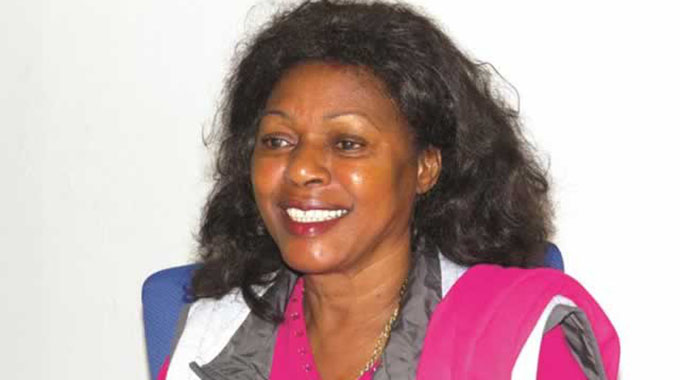Shurugwi’s reproductive health revolution
Ruth Butaumocho Gender Editor
Tendai Muranda of Mazivandadzoka Village in Shurugwi collects a container from the kitchen preparing to go and fetch water at the village borehole, a kilometre away. Having walked a few metres, she realises she has left her mobile phone and immediately rushes back to collect it. As soon as Tendai picks up her phone, a message alert from her inbox pops up.
She momentarily puts the water pail down and begins to read the message, fully aware that nearly all of the girls in her village and the surrounding areas are going through the same message.
Each day, more than 50 girls around Chachacha and Zvamavande areas in Shurugwi look forward to receiving information via their mobile phones on a number of problems they face as youth.
The messages that are usually funky, hilarious and quite engaging are not just ordinary chats, but tackle different issues girls face every day, but are rarely addressed within their communities.
Although it is a fairly new concept in Shurugwi and probably a first of its kind in Zimbabwe, the shared sms mobile platform that was launched by the Zimbabwe Women’s Resource Centre and Network ( ZWRCN) with support from Hivos, has proved to be a hub of information on sexual and reproductive health.
ZWRCN launched this pilot project early this year after realising the potential role that information and communication technology, particularly mobile usage, can play in increasing youth access to sexual and reproductive health-related matters.
The role is huge and untapped.
Rather than let the youths spend hours of their time playing games or chatting endless on social networks, ZWRCN realised that it could use the same medium to send helpful information on several subjects focusing on adolescents including sexual and reproductive health.
And the approach has found favour with the youths, who could not access the information anywhere due to social and cultural barriers.
“It was difficult to ask questions around the issue of sex, puberty and HIV especially from out parents, but all our worries and other questions we had around adolescents are now being taken care of,” said Tendai, who is 15.
Another beneficiary of the programme, 15-year-old Nomatter Chimwanda, said the mobile platform had become a launchpad for information for all girls in the area, because they were now able to access all the information they need on adolescence at the click of a button.
“We are not only receiving the information and forget about it, but we have since formed social forums where we hold discussions on issues around sexual and reproductive health.
“It is within these social forums that we interrogate the whole concepts around sexual and reproductive health, while using the mobile apps as our guidelines.
“Because we are within the same age groups, we open up on our problems, something we were not able to do within our homes. We can share our dreams, hopes, aspirations and even our fears, without worrying about anything,” explained Nomatter.
When the issues become controversial, too sophisticated and too scientific, the social groups rope in different critical service providers such as the police, nurses and even community leaders to level the ground.
“We also hold regular meetings with health service providers within our community so that we can ask questions on issues and subjects that we are not familiar with,” said another beneficiary, Shingai Tarusarira.
Even the community leadership is happy with the programme which they say has long-term positive effects on the youths in the area.
Councillor Lettinah Nyoni of the Tongogara Rural District Council, who usually attends the social services committee meetings which are directly responsible for youths in the community, said the project was promoting good morals among youth’s especially young women.
“The programme has not been running for a long time, but we are beginning to see behavioural change,” she said.
She added that the launch of the project in the area was timely because the district had been battling with problems of delinquency among the youth, resulting in unwanted pregnancies and a coterie of sexually related health problems.
ZWRCN decided to launch the pilot project in Shurugwi after a baseline survey it carried revealed that young people in the area did not have comprehensive knowledge of sexual reproductive health despite engaging in sexual intercourse at early ages without any protection.
Their knowledge on sexual and reproductive health was poor, putting them at risk of engaging in risky sexual behaviour, and subsequently contracting HIV.
“Research has shown that sexuality and power are the root cause of most sexual and reproductive health problems. Good heath depends in part on having the knowledge and power to negotiate within intimate relationships and society as a whole.
“It was for that reason that we decided to come up with the pilot project, taking advantage of the pervasive presence and commonality of mobile devices for communication technology as innovative modalities for innovative change,” said ZWRCN information and communications officer Ms Buhlebenkosi Moyo.
The pilot project is currently running in Epworth and Shurugwi, areas where young women had a low knowledge on sexual and health reproductive, and also has a high penetration of mobile usage.
“During the survey the majority of the respondents – 88 percent – who were between the ages of 15 and 25, suggested the use of mobile phones and computers as a platform of sharing information, and we adopted that,” Ms Moyo said.
Ms Moyo added although the young women were using their own phones, plans were underway to buy smartphones for the group.
“They are using their personal mobile phones, whilst others do not have and have to borrow from parents and friends. We are, however, in the process of buying them smartphones for the programme,” she said.
However, the programme has not been without its fair share of challenges that are threatening to erode gains made to date.
“Because the majority of young women in the project come from impoverished backgrounds, they continue to engage in risky sexual behaviour, arguing that they will only stop once they get some income- generating projects to do,” she said.
Feedback: [email protected]







Comments